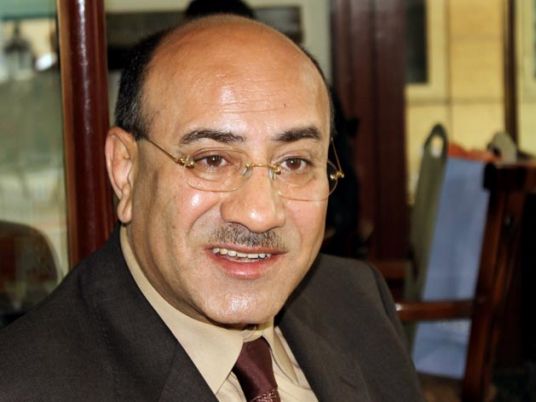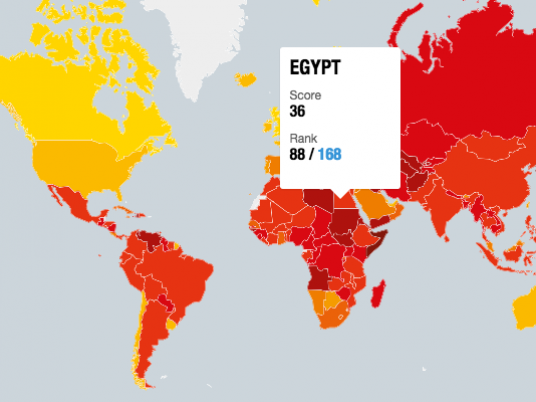Corruption cases against members of the former cabinet, NDP members and parliamentarians take the main headlines in both state-run and independent newspapers.
At a press conference on Monday, head of Egypt’s Central Auditing Organization, Dr. Gawdat al-Malt, said that more than 1000 cases have been presented to the government, parliament and presidential office over the past six years calling for immediate anti-corruption measures and reforms. These reports were mainly ignored, according to al-Malt, who said that Egypt’s debt reached LE1.08 billion in June 2010, representing over 89.5 percent of GDP.
Media reports on the press conference are accompanied by expansive lists of government officials and parliamentarians who have been forbidden from leaving the country.
Mounir Thabet, brother of former First Lady Mrs. Suzanne Mubarak, comes top of these lists. State-run Al-Ahram gives information about two companies which Thabet is accused of having used to monopolize the transportation of US military and economic aid to Egypt over the past few decades.
In an interview with state-run Al-Akhbar, former Minister of Agriculture Ahmed al-Leithy explains how Ahmed Nazif’s cabinet reversed his agricultural policies, which aimed to expand the production of basic food staples locally, in favor of imports. Al-Leithy adds that several carcinogenic pesticides, which he had banned, have been used in Egypt since 2005 under the Nazif cabinet.
All newspapers confirm that Safwat al-Sherif, former secretary-general of the NDP, and Zakaria Azmy, former head of the president’s office, have not been prevented from leaving Egypt.
Whereas security measures at Cairo International Airport are tight, state-run Rose al-Youssef reports that Alamein airport, on the North Coast, has lax security measures and it is suspected that government officials having been using the airport to flee the country.
Tuesday’s papers also report that, in response to increasing labor protests across Egypt, the Supreme Council of Armed Forces continues to ask citizens to stop the demonstrations and work on reforms.
Police forces also joined the protests, expressing their solidarity with the nation and trying to rebuild trust. Policemen at the demonstrations called for the execution of former Minister of Interior Habib al-Adly, citing corruption incidents across the board.
In anecdotal style, Al-Ahram reports on the testimony of a group of police protesters in Alexandria who said they were deployed to bring yoghurt every day during the summer from Cairo to the Mediterranean resort Marina, where an important government official spent his vacation.
Independent Al-Dostour reports on a study presented in 1994 by a Police Academy faculty member to the Ministry of Interior, proposing solutions to combat corruption. The study was completely ignored by the authorities, says the newspaper.
Al-Akhbar also reports that 225 NDP members have resigned. Rose al-Youssef, on the other hand, runs a short piece about how NDP members in different governorates are trying to revive the party, fearing the political void caused by its suspension, especially as conditions for establishing new political parties are now difficult, the newspaper reports.
In his first interview with a state newspaper, Ayman Nour, the founder of the Ghad Party, confirmed to Al-Akhbar that he will run in the upcoming presidential elections. Nour believes there will be no military rule in Egypt, because, unlike the 1952 revolution, on 25 January it was the people who spearheaded the calls for reforms. In the interview Nour also calls for developing a new constitution that would lead to fair parliamentary and presidential elections.
In privately-owned Al-Shorouk, Fahmy Houidy writes that constitutional reforms should come after introducing real civil liberties to allow people to participate in the reform process.
Meanwhile, in an attempt to preserve the legacy of the 25 January revolution, the Contemporary Memory of Egypt Project, run by the Bibliotheca Alexandrina, has been collecting documentary images, footage and press packages about the events in various Egyptian governorates, various national newspapers report. The project has been working over the past few years on creating an archive on the history of Egypt from the 19th century until the 1970s. Al-Gomhorriya reports that history teachers are proposing introducing classes about the revolution in school curricula in the new academic year.
Egypt's papers:
Al-Ahram: Daily, state-run, largest distribution in Egypt
Al-Akhbar: Daily, state-run, second to Al-Ahram in institutional size
Al-Gomhorriya: Daily, state-run
Rose al-Youssef: Daily, state-run, close to the National Democratic Party's Policies Secretariat
Al-Dostour: Daily, privately owned
Al-Shorouk: Daily, privately owned
Al-Wafd: Daily, published by the liberal Wafd Party
Al-Arabi: Weekly, published by the Arab Nasserist party
Youm7: Weekly, privately owned
Sawt al-Umma: Weekly, privately owned



